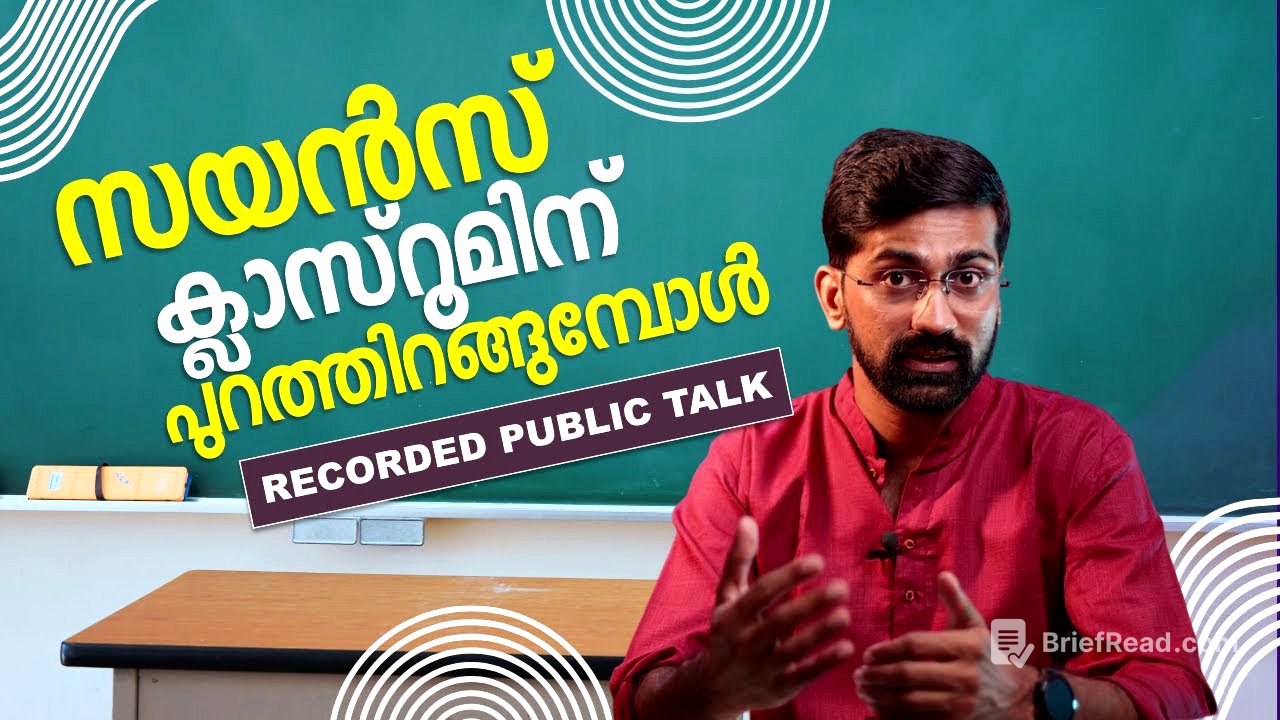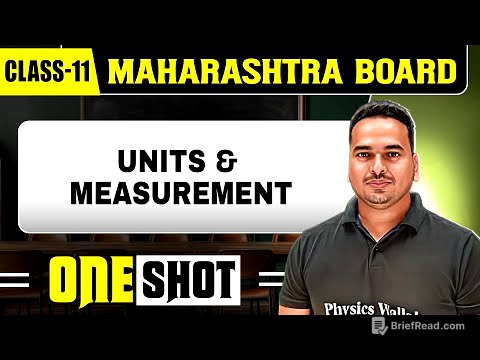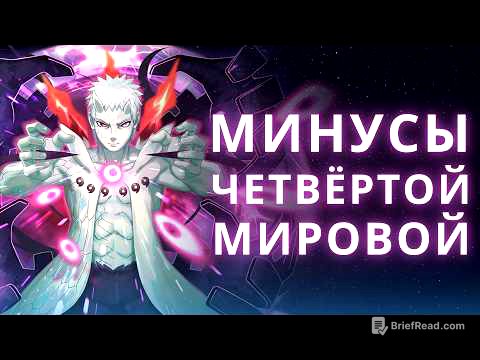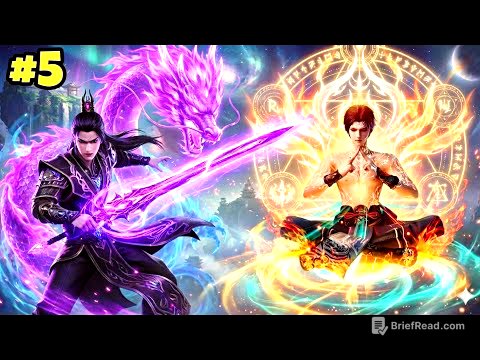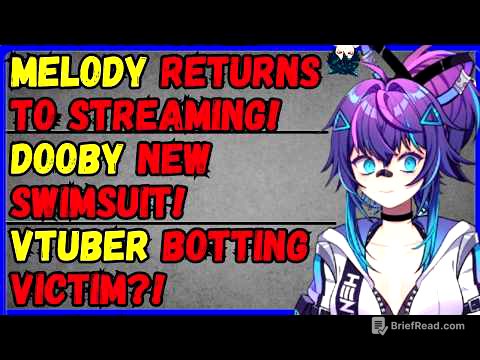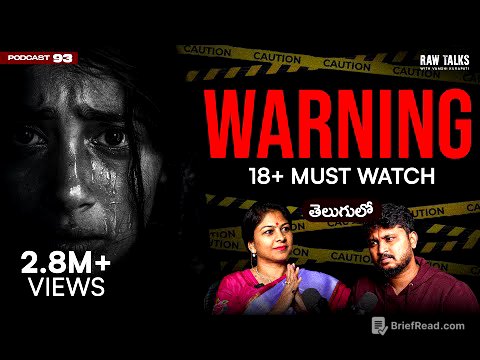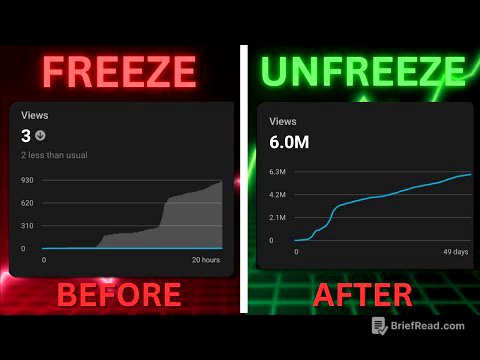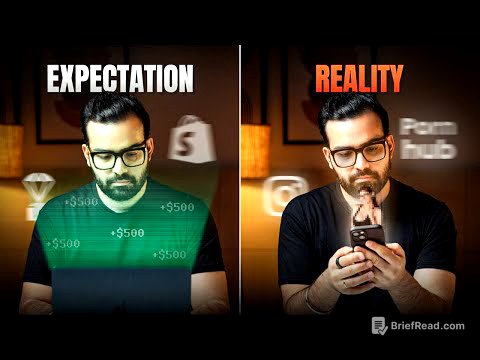TLDR;
This video explores the concept of "When Science Leaves the Classroom" and how scientific knowledge applies to real-world situations. It highlights the importance of understanding the interconnectedness of different scientific disciplines and the limitations of compartmentalizing knowledge. The video also discusses the role of scientific temper in addressing real-world issues like climate change and the need for a more holistic approach to education.
- Science is a unified endeavor, not a collection of separate subjects.
- Real-world applications of science require a comprehensive understanding of various disciplines.
- Scientific temper is crucial for critical thinking and addressing real-world problems.
Science Beyond the Classroom [0:00]
The video begins by discussing the limitations of viewing science solely as a classroom subject. It emphasizes that scientific knowledge should extend beyond textbooks and exams, influencing our understanding of the world around us. The video uses the example of Albert Einstein's quote about education, suggesting that true education should leave a lasting impact even after formal learning is complete.
Einstein's Quote on Education [1:00]
The video explores the quote by Albert Einstein, "Education is what remains after one has forgotten everything one learned in school." It explains that true education should equip individuals with critical thinking skills and a deeper understanding of the world, rather than just memorizing facts.
The Smartphone: A Case Study [2:04]
The video uses the smartphone as an example to illustrate how science permeates everyday life. It delves into the technology behind smartphone displays, explaining the role of LEDs and the principles of quantum mechanics. The video also discusses the concept of primary colors in light and how our eyes perceive color.
The Interconnectedness of Science [11:34]
The video emphasizes the interconnectedness of different scientific disciplines, using the example of Nobel laureate Venki Ramakrishnan's work on ribosomes. It highlights how his research in chemistry contributed to our understanding of biology, demonstrating the blurred lines between scientific fields.
The Limitations of Compartmentalized Knowledge [17:23]
The video discusses the limitations of compartmentalizing scientific knowledge, using Newton's Second Law of Motion as an example. It highlights the discrepancy between the idealized application of the law in a classroom setting and its real-world complexities. The video argues that a more holistic approach to science education is necessary to bridge the gap between theory and practice.
The Importance of Scientific Temper [25:46]
The video emphasizes the importance of scientific temper, which involves critical thinking, skepticism, and a willingness to question assumptions. It argues that scientific temper is essential for addressing real-world issues like climate change, where a nuanced understanding of various scientific disciplines is required.
The Non-Linearity of Scientific Progress [39:04]
The video discusses the non-linear nature of scientific progress, highlighting how discoveries are often made in a seemingly random order. It uses the examples of the discovery of the neutron and the development of the theory of relativity to illustrate this point. The video emphasizes that scientific progress is not always a linear progression from basic to advanced concepts.
The Human Element in Science [47:05]
The video concludes by emphasizing the human element in science. It highlights the importance of recognizing that scientists are individuals with their own lives, struggles, and motivations. The video uses the example of Ludwig Boltzmann, a pioneer in statistical mechanics, to illustrate how personal factors can influence scientific progress. It encourages viewers to see scientists as human beings rather than just names in textbooks.
